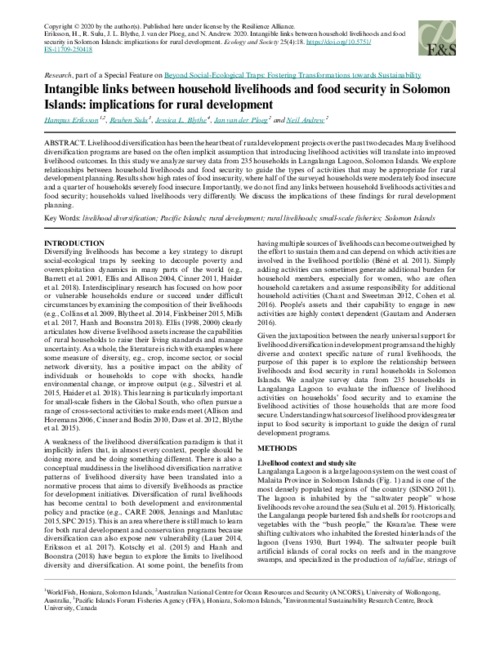Intangible links between household livelihoods and food security in Solomon Islands: implications for rural development

Livelihood diversification has been the heartbeat of rural development projects over the past two decades. Many livelihood diversification programs are based on the often implicit assumption that introducing livelihood activities will translate into improved livelihood outcomes. In this study we analyze survey data from 235 households in Langalanga Lagoon, Solomon Islands. We explore relationships between household livelihoods and food security to guide the types of activities that may be appropriate for rural development planning. Results show high rates of food insecurity, where half of the surveyed households were moderately food insecure and a quarter of households severely food insecure. Importantly, we do not find any links between household livelihoods activities and food security; households valued livelihoods very differently. We discuss the implications of these findings for rural development planning.
Permalink
Date Available
Type
Publisher
Countries
ISSN
1708-3087
Copyright
CC-BY-NC-4.0
Research Themes
Topics
Language